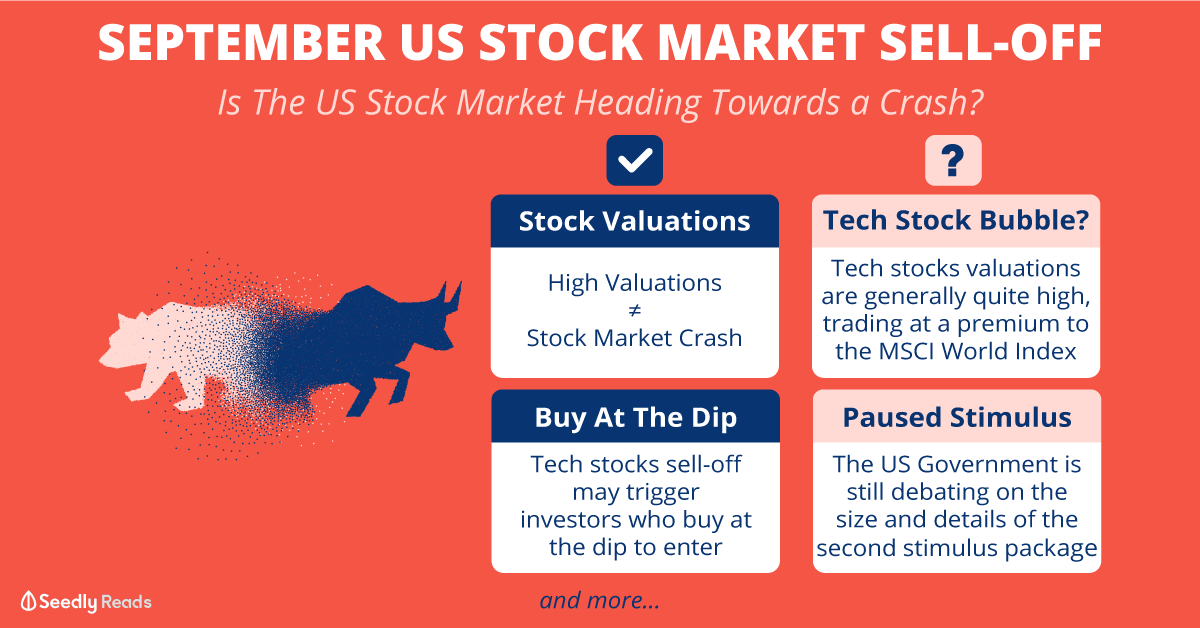Advertisement
Anonymous
Understand that SG market is pretty dead compared to the US. Since I'm still young, should I sell all of my holdings in SG and move over to the US?
20
Discussion (20)
Learn how to style your text
Tim Phillips (ProsperUs)
15 Apr 2021
Head of Content & Investment Lead at ProsperUs, CGS-CIMB Securities
Reply
Save
Ryan Toh, sharing ideas @ Just A Cuppa
15 Apr 2021
Biz Student at SMU
Had the same dilemma too, but decided to take a really long-term horizon approach to investing and allocate capital in both markets with US for cap gains and growth and SG for stable dividend.
Imo, the stable dividend approach to SG stocks requires more patient and regular allocation especially if you're looking for passive income returns. Its better to lay the foundation early on and let the compounding effect take its natural course - afterall we're both young and we have time (lots of it) on our side
Reply
Save
If you got the time, you go and compare the STI with our neighboring countries index. Then after that you compare with Nasdaq and S&P500.
While you wait for STI to recover, others are happily making money.
So you decide.
Happy Investing. !
Reply
Save
You should only sell your holdings in the SG market if you are invested in fundamentally failing companies which are heavily affected by the COVID-19 pandemic. Otherwise, there is no need to withdraw from the SG market just to port over to the US side as it would be a good opportunity to build you dividend portfolio by just holding the right SG stocks. Some prime examples would be the three Mapletree comapanies, Ascendas REIT and CapitaMall Trust (should recover soon with reducing COVID numbers).
The US market is indeed growing. However, we cannot assume its growth can be sustained in the short term since it has been experiencing a bull run for the past few months. Recently, the US market has experienced burst in its NASDAQ tech bubble and we won't know if it will suffer another blow in the upcoming US elections.
My advice would be to continue investing regularly with a fixed amount (Dollar Cost Averaging) every month instead of switching over with a lump sum. This way, you reap benefits from both markets in the long term. You can minimise volatility risk in the US market while staying invested in the SG market to build a passive income stream over time. Stay consistent and always look ahead!
Hope this helps 😀.
Reply
Save
Lin Yun Heng
14 Oct 2020
Senior Analyst at Delphi
If you are a young investor, I assume you have a small starting capital of less than 100k so it won'...
Read 10 other comments with a Seedly account
You will also enjoy exclusive benefits and get access to members only features.
Sign up or login with an email here
Write your thoughts
Related Articles
Related Posts
Related Posts
Advertisement








It's always worth having some exposure to your home market so, in Singapore's case, it would be in "yield" names that are highly liquid, such as REITs or the leading banks.
As for the US, you're young and you definitely need exposure. First off, it's important to understand why. Take the total market cap (so the value of all shares combined) of the respective stock markets. In the US, the total market cap is about US$45 trillion. Singapore? It's close to US$600 billion.
That illustrates the size and breadth of the market (as well as opportunity set) in the US. It's also because global companies list shares in the US - you'll find Alibaba, Nestle, JD.com, TSMC, Toyota, Sony, Nintendo to name just a few.
In Singapore, that international slant just doesn't exist. Then you move on to liquidity of the stock markets, so basically the total value of all shares traded on a daily basis. Liqudiuty supports bigger price action/movement so it should be seen as a positive, overall.
In the US, the average daily volume (ADV) in 2020 of the Nasdaq + NYSE was around US$195 billion. On the Singapore exchange, in 2020 the ADV was US$2.1 billion.
The above plays out in all sorts of ways but, crucially, it also means institutional and pension fund money just doesn't flow into Singapore on the level that you want because the markets aren't deep or liquid enough.
Bottom line? Definitely have more overall exposure to the US but don't completely discount Singapore because the opportunity set here serves a purpose. However, keep it limited to highly liquid, quality and large cap companies that pay sustainable dividends.